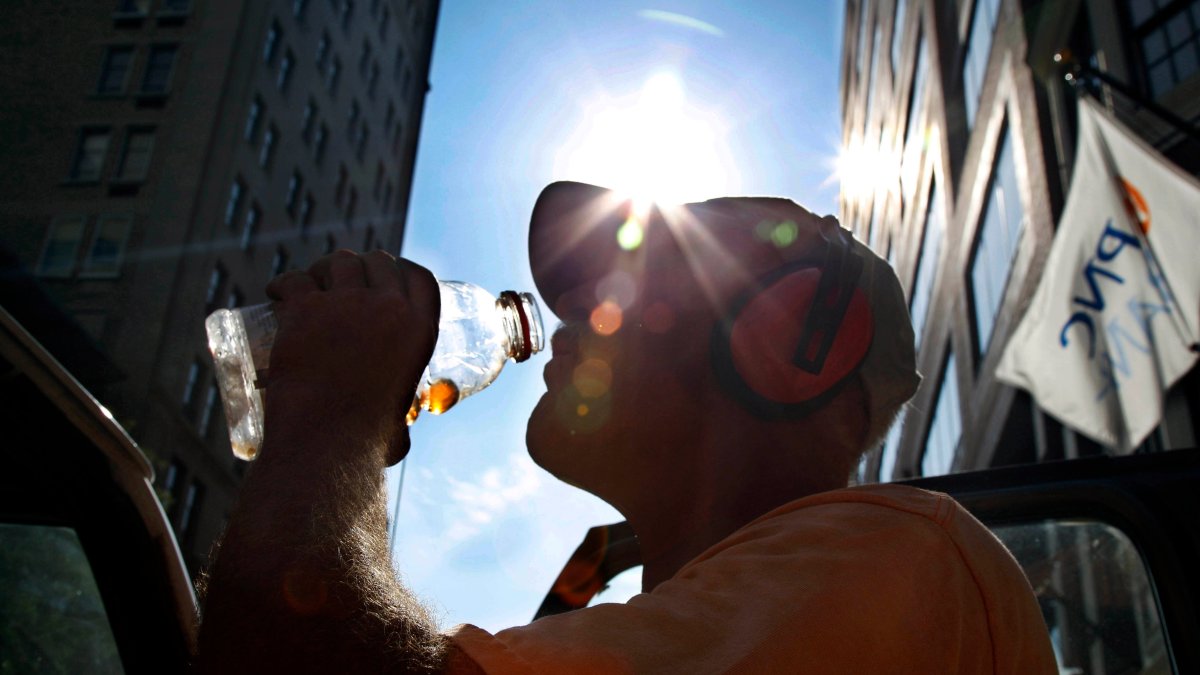
When the temperatures begin to rise, it’s important to know what you should and shouldn’t do to keep you and your loved ones safe. Here are some tips.
Much of the Bay Area is seeing dangerously hot conditions this week with temperatures over 100 degrees in many cities.
An Excessive Heat Warning is in effect across the Bay Area, Sacramento and the Central Valley, according to the National Weather Service. A heat advisory is in place along parts of the California coast.
Many cities in the Bay Area broke temperature records on Monday, including Livermore which hit 116 degrees, shattering a record set in 1950, according to the weather service.
Get a weekly recap of the latest San Francisco Bay Area housing news. Sign up for NBC Bay Area’s Housing Deconstructed newsletter.
Downtown San Francisco and neighborhoods along the bay could see highs reach into the low 90s Tuesday. Temperatures may cool a bit on Wednesday before an increase again on Thursday.
Visit our NBC Bay Area weather page to get your microclimate forecast and latest weather updates.
When will the heat warning end?
The Excessive Heat Warning continues through 8 p.m. Thursday, with temperatures forecasted up to 115 degrees, according to the NWS.
The following Bay Area regions are affected by the heat warning:
- Sonoma Coastal Range
- North Bay Interior Mountains
- North Bay Interior Valleys
- East Bay Interior Valleys
- Santa Cruz Mountains
- Santa Clara Valley
- Eastern Santa Clara Hills
- East Bay Hills
The heat warning is slated to end at 8 p.m. Tuesday in the following regions.
- Marin Coastal Range
- San Francisco Bay Shoreline
- Northern Salinas Valley
- Hollister Valley
- Carmel Valley
- Northern Monterey Bay
“Extreme heat will significantly increase the potential for heat related illnesses, particularly for those working or participating in outdoor activities,” the NWS said.
What areas are under the heat advisory?
The following areas will be under an advisory beginning at 8 p.m. Tuesday through Thursday at 8 p.m.
- Marin Coastal Range
- San Francisco Bay Shoreline
- Northern Salinas Valley
- Hollister Valley
- Carmel Valley
- Northern Monterey Bay
Heat safety tips
The expected high temperatures increase the chances of heat related illnesses.
Here are some tips to avoid heat-related health problems.
- If available, stay in an air-conditioned area during the hottest hours of the day.
- Wear light, loose-fitting clothing.
- Drink plenty of water (avoid alcohol and sugary drinks) and don't wait until you are thirsty.
- Take cool showers.
- Never leave a child, elderly person, or pet unattended in a car.
- Keep pets cool in hot weather.
- Avoid unnecessary hard work or activities outside during the hottest part of the day.
- Avoid unnecessary sun exposure and wear a wide-brim hat if you need to be in the sun.
- Avoid using the oven to cook.
How to identify heat exhaustion and heat stroke
An extremely high body temperature (103 or higher), dizziness, nausea, confusion, and headache are signs of heat stroke or exhaustion. If someone shows these signs, call 911 and begin cooling the individual. Here’s how:
- Moving them to a shaded area.
- Spraying with cool water and fanning them.
- Placing them in a cool shower if they are alert.
- Monitoring the body temperature and continue cooling efforts.
- Do not give the victim fluids to drink.
People age 65 and older, infants and children, and people with chronic medical conditions are more prone to heat stress. People with elderly neighbors should check in on their well-being.
For more heat safety tips visit ready.gov.